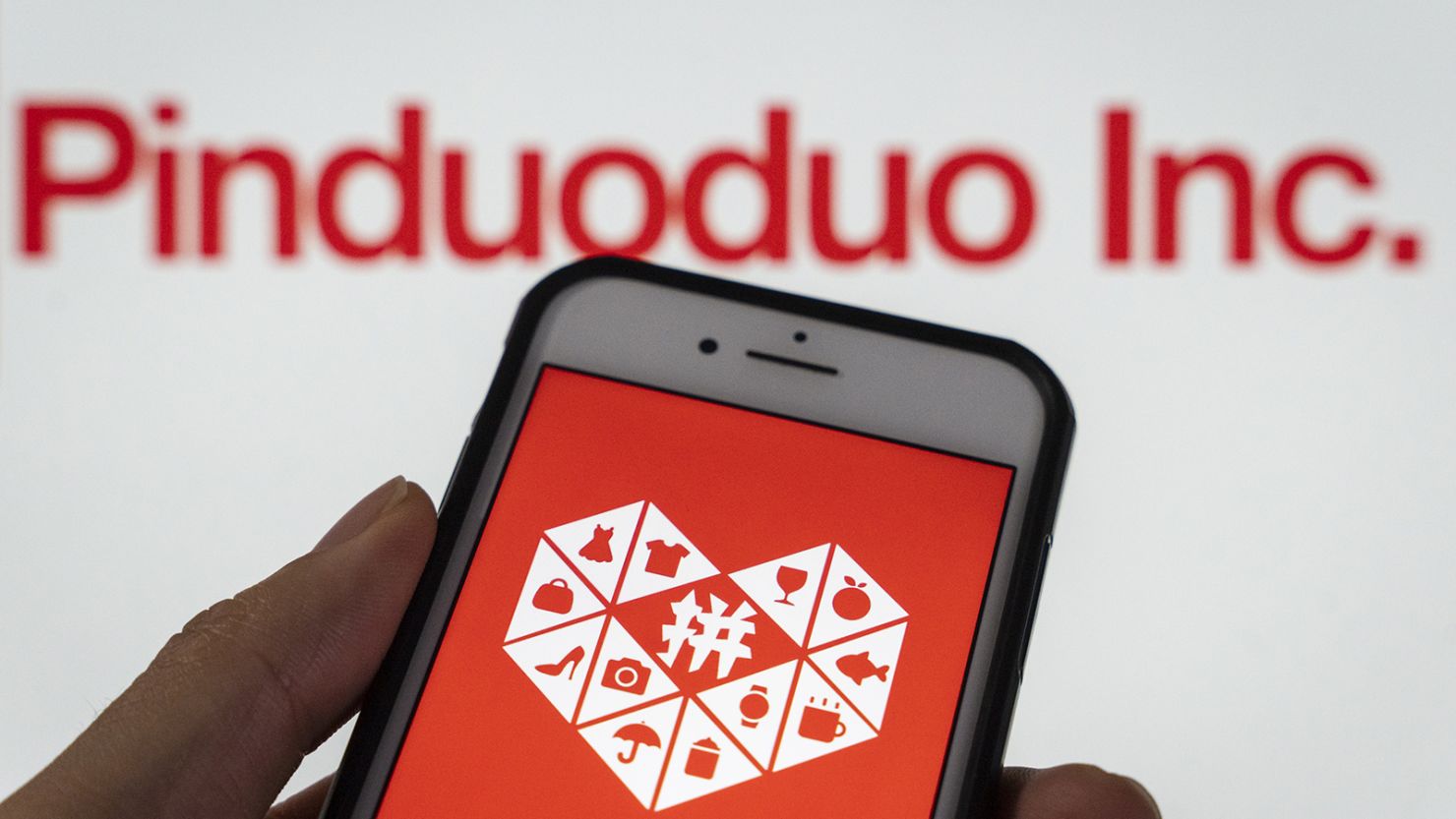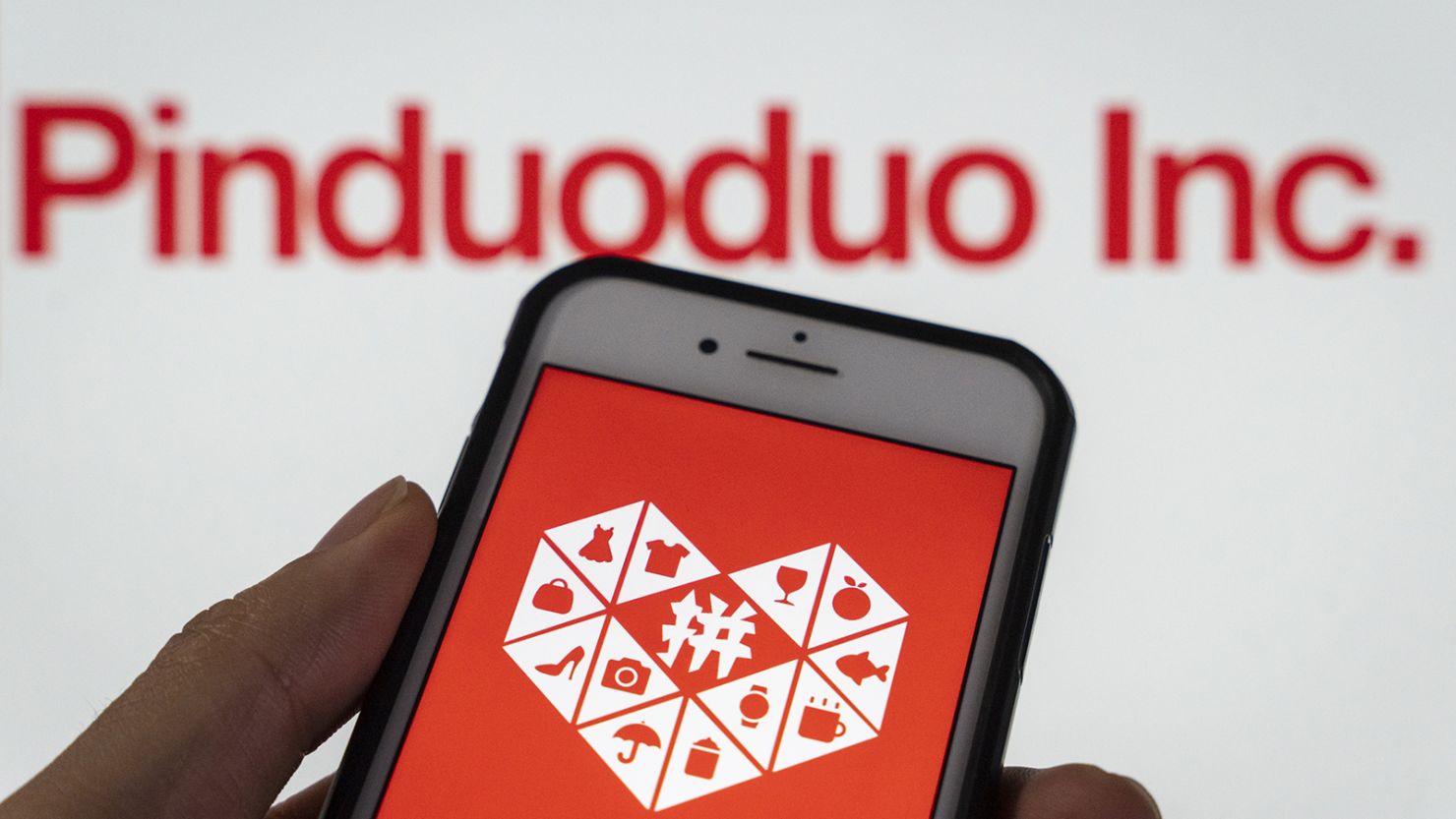Pinduoduo Inc. (PDD) Q1 2025 Earnings Report Analysis

Pinduoduo Inc. (PDD) Q1 2025 Earnings Report Analysis
PDD reported a GAAP diluted earnings per share (EPS) of $1.36 per ADS, missing the Zacks Consensus Estimate of $2.49, resulting in a negative earnings surprise of 45.38%. The non-GAAP diluted EPS was $1.56 per ADS, also below the consensus estimate but reflecting adjustments for non-cash expenses like share-based compensation. Compared to Q1 2024’s non-GAAP EPS of $2.83, the current quarter’s earnings reflect a 44.9% decline, driven by increased platform investments. In contrast, Q4 2024 saw PDD outperform with a non-GAAP EPS of $2.76, a positive surprise of 7.81%.
Revenue for the quarter reached RMB 95.67 billion (approximately US$13.18 billion), up 10% from RMB 86.81 billion (US$12.02 billion) in Q1 2024. However, this fell short of the Zacks Consensus Estimate of $14.17 billion by 6.93%, reflecting challenges such as tariff barriers and intensified competition. Despite the miss, PDD’s revenue growth was driven by strong performance in transaction services and online marketing, though the company has faced difficulties meeting lofty analyst expectations in recent quarters.
Following the earnings release, PDD’s stock dropped approximately 15% in pre-market trading, as investors reacted to the earnings and revenue misses. The decline was exacerbated by a 47% year-over-year drop in net income, attributed to a 37% increase in operating expenses, including a 43% rise in sales and marketing costs to support merchants and expand Temu’s global presence.
PDD’s valuation metrics include a price-to-earnings (P/E) ratio of approximately 9.5, suggesting the market views its earnings as reasonably priced. The price-to-sales (P/S) ratio is around 0.68, indicating a low valuation relative to revenue. The enterprise value-to-sales (EV/S) ratio stands at about 0.55, reinforcing PDD’s attractive valuation. The company maintains robust liquidity, with a current ratio of 2.25 and cash and short-term investments of RMB 364.5 billion (US$50.2 billion) as of March 31, 2025, ensuring its ability to cover short-term liabilities.
PDD’s Q1 2025 performance reflects a strategic focus on long-term growth through heavy investments in merchant support, logistics, and international expansion via Temu. These initiatives, while pressuring profitability, aim to strengthen PDD’s ecosystem amid competitive and regulatory challenges. The company’s ability to grow revenue by 10% despite trade tensions highlights its operational resilience, though tariff barriers and rising costs remain headwinds.
| Symbol | Price | %chg |
|---|---|---|
| BELI.JK | 378 | -0.53 |
| MAPA.JK | 715 | -0.7 |
| BUKA.JK | 168 | -0.6 |
| ACES.JK | 456 | -0.88 |

PDD Holdings Inc. (NASDAQ:PDD) Reports Q2 2024 Financial Results

Pinduoduo's Upcoming Quarterly Earnings: A Deep Dive into Financial Metrics
Pinduoduo, listed on the NASDAQ, is a prominent figure in the digital commerce sector, gearing up for its quarterly earnings release on August 25, 2025. This event is highly anticipated by investors and analysts alike, as it provides valuable insights into the company's financial health and market position.
Key Financial Insights:
- Earnings Per Share (EPS): Wall Street estimates PDD's EPS to be $1.91, with projected revenue of approximately $14.36 billion.
- Market Valuation Ratios: PDD has a price-to-earnings (P/E) ratio of 11.88, a price-to-sales ratio of 2.93, and an enterprise value to sales ratio of 2.78.
- Financial Health Indicators: The company boasts a low debt-to-equity ratio of 0.034 and a current ratio of 2.27, indicating strong financial stability.
Despite the anticipated increase in revenue, PDD is expected to report a decline in earnings for the second quarter of 2025. The actual results could significantly impact PDD's stock price, with potential upward movement if earnings surpass expectations. Pinduoduo's financial metrics offer a comprehensive view of its market valuation.
The company's price-to-earnings (P/E) ratio of 11.88 signals how the market values its earnings, while its price-to-sales ratio of 2.93 reflects the market's valuation of its revenue. The enterprise value to sales ratio of 2.78 further demonstrates the market's valuation relative to sales. The enterprise value to operating cash flow ratio stands at 9.62, highlighting how the market values Pinduoduo's cash flow from operations.
With an earnings yield of 8.42%, investors gain insight into the earnings generated per dollar invested. Pinduoduo maintains a low debt-to-equity ratio of 0.034, indicating minimal debt compared to equity. Pinduoduo's current ratio of 2.27 suggests a strong ability to cover short-term liabilities with short-term assets. The management's discussion during the earnings call will be crucial in assessing the sustainability of any immediate price changes and future earnings expectations. The earnings conference call will be webcast live at 7:30 AM ET on August 25, 2025.

PDD Holdings Inc. (NASDAQ:PDD) Faces Financial Challenges Amid Strategic Investments
- PDD Holdings Inc. (NASDAQ:PDD) reaffirmed a "Buy" rating by Benchmark despite financial challenges and strategic spending affecting margins.
- The company reported a shortfall in its first-quarter earnings, with earnings per share and sales missing expectations.
- Despite recent financial setbacks, PDD's strategic investments aim to ensure sustainable growth, with analysts remaining optimistic about its long-term potential.
PDD Holdings Inc. (NASDAQ:PDD) is a prominent player in the e-commerce sector, known for its innovative platform that connects consumers with a wide range of products. The company has been making strategic investments to enhance its platform ecosystem, aiming to support both merchants and consumers amidst rapid market changes. Despite these efforts, PDD faces stiff competition from other e-commerce giants, which adds pressure to its financial performance.
On May 28, 2025, Benchmark reaffirmed its "Buy" rating for PDD, with the stock priced at approximately $98.72. This decision comes despite the company's recent financial challenges, as highlighted by Benzinga. PDD's margins have been affected by strategic spending, yet analysts remain optimistic about its long-term potential. However, the exact timing of when these investments will pay off is still uncertain.
PDD's recent first-quarter earnings report revealed a shortfall, with earnings per share at $1.56, missing the expected $2.49. Sales also fell short, totaling $13.18 billion against a forecast of $14.17 billion. Chairman and Co-CEO Lei Chen explained that the company is prioritizing investments to ensure sustainable growth, even if it impacts short-term profitability. This approach is intended to strengthen the platform's long-term health.
Following the earnings announcement, JP Morgan analyst Ellie Jiang maintained a Neutral rating on PDD but adjusted the price target. The stock is currently priced at $98.04, reflecting a 4.80% decrease, with a trading range between $97.49 and $101.04 for the day. Over the past year, PDD's stock has seen significant fluctuations, reaching a high of $155.67 and a low of $87.11.
PDD's market capitalization is approximately $34.79 billion, with a trading volume of 13.45 million shares on the NASDAQ exchange. Despite the recent financial setbacks, the company's strategic investments are aimed at fostering high-quality growth, which analysts believe could lead to long-term benefits. However, the market remains cautious as the timing of these benefits is yet to be determined.

Pinduoduo's Upcoming Quarterly Earnings: A Financial Overview
Pinduoduo, listed on the NASDAQ as PDD, is a key player in the digital commerce sector. The company is set to release its quarterly earnings on May 27, 2025, with Wall Street analysts estimating an earnings per share (EPS) of $2.49. Pinduoduo's revenue is projected to reach approximately $103.37 billion, reflecting its significant market presence.
Pinduoduo's financial metrics provide insight into its market valuation. The company has a price-to-earnings (P/E) ratio of 11.37, indicating how the market values its earnings. A price-to-sales ratio of 0.78 suggests a relatively low market valuation compared to its revenue. This is further supported by an enterprise value to sales ratio of 0.66, reflecting its valuation in relation to sales.
The company's financial health is underscored by its low debt-to-equity ratio of 0.03, indicating minimal reliance on debt. Pinduoduo's strong liquidity position is evident with a current ratio of 2.21, suggesting it can comfortably cover short-term liabilities. This financial stability is crucial for sustaining growth and supporting its digital economy initiatives.
Pinduoduo's earnings yield of 8.80% offers a return on investment based on its earnings, making it an attractive option for investors. The enterprise value to operating cash flow ratio of 2.12 indicates how the market values the company's cash flow, highlighting its operational efficiency. These metrics collectively showcase Pinduoduo's robust financial standing and potential for future growth.

Citi Upgrades Pinduoduo as Tariff Risks Ease, Sees Upside to Temu's U.S. Growth
Citi raised its rating on Pinduoduo (NASDAQ:PDD) from Neutral to Buy, lifting the price target to $165 from $127, citing a more favorable U.S. tariff environment and improved profitability outlook for its Temu platform.
The upgrade follows a larger-than-anticipated and earlier-than-expected reduction in tariffs, which is seen as a key tailwind for Chinese cross-border sellers. Although the U.S. maintained the $800 de minimis threshold, Temu's strategic pivot to a semi-managed model and recent price increases position it to absorb the impact of a “30%+” tariff more effectively.
Citi expects that Chinese sellers will manage the cost burden through a combination of price passthrough to U.S. consumers and cost savings, including lower ad spend and production efficiencies. The focus on selling higher quality, higher-priced goods is also expected to support margins.
Additionally, with many sellers having pre-stocked inventory in the U.S. ahead of the tariff changes, a temporary cost-price mismatch could drive better-than-expected profits for Temu in Q2 2025. With the tariff overhang now diminished, Citi sees a clearer path for growth and profitability, justifying the rating upgrade.

Citi Upgrades Pinduoduo as Tariff Risks Ease, Sees Upside to Temu's U.S. Growth
Citi raised its rating on Pinduoduo (NASDAQ:PDD) from Neutral to Buy, lifting the price target to $165 from $127, citing a more favorable U.S. tariff environment and improved profitability outlook for its Temu platform.
The upgrade follows a larger-than-anticipated and earlier-than-expected reduction in tariffs, which is seen as a key tailwind for Chinese cross-border sellers. Although the U.S. maintained the $800 de minimis threshold, Temu's strategic pivot to a semi-managed model and recent price increases position it to absorb the impact of a “30%+” tariff more effectively.
Citi expects that Chinese sellers will manage the cost burden through a combination of price passthrough to U.S. consumers and cost savings, including lower ad spend and production efficiencies. The focus on selling higher quality, higher-priced goods is also expected to support margins.
Additionally, with many sellers having pre-stocked inventory in the U.S. ahead of the tariff changes, a temporary cost-price mismatch could drive better-than-expected profits for Temu in Q2 2025. With the tariff overhang now diminished, Citi sees a clearer path for growth and profitability, justifying the rating upgrade.







